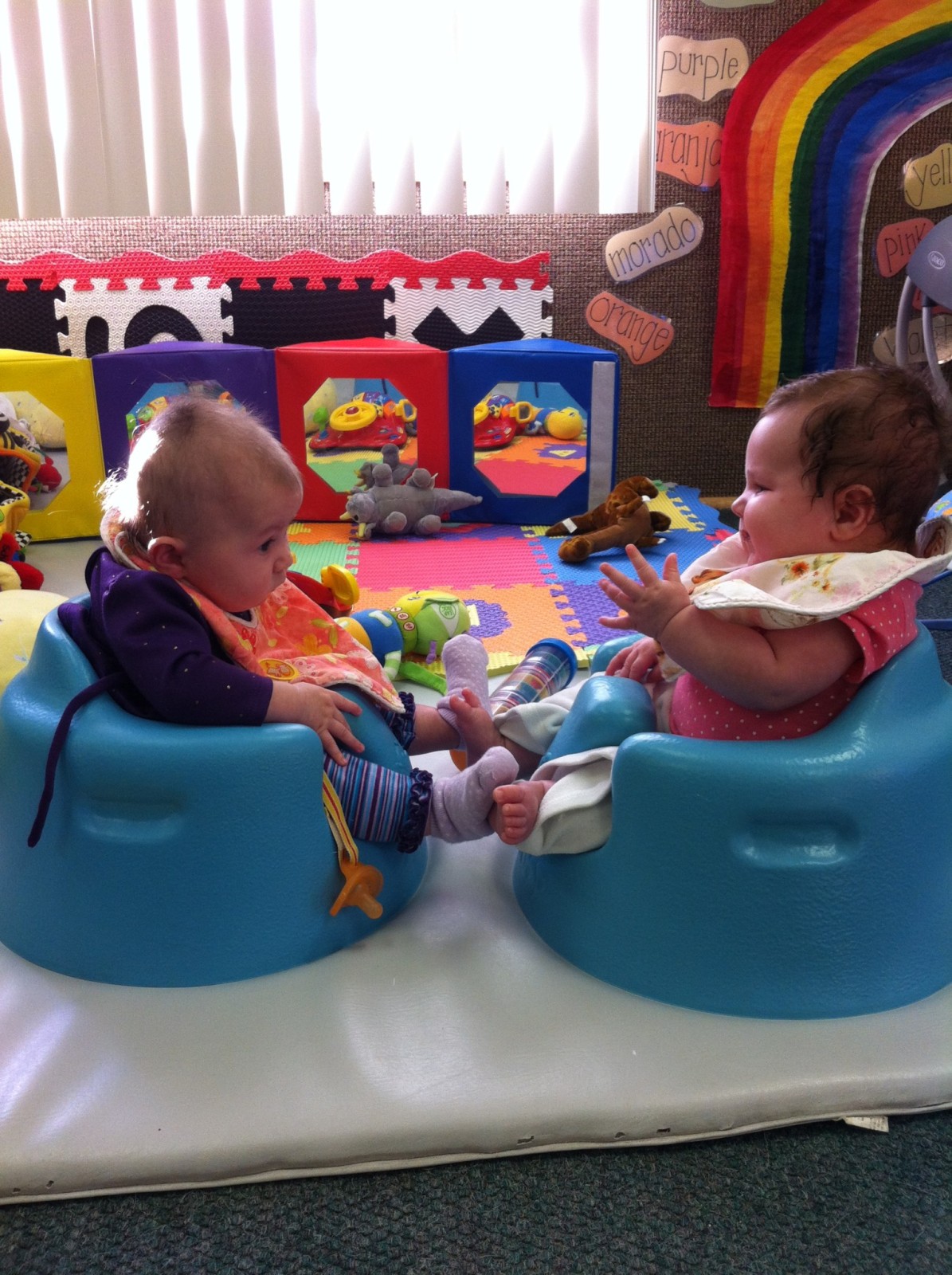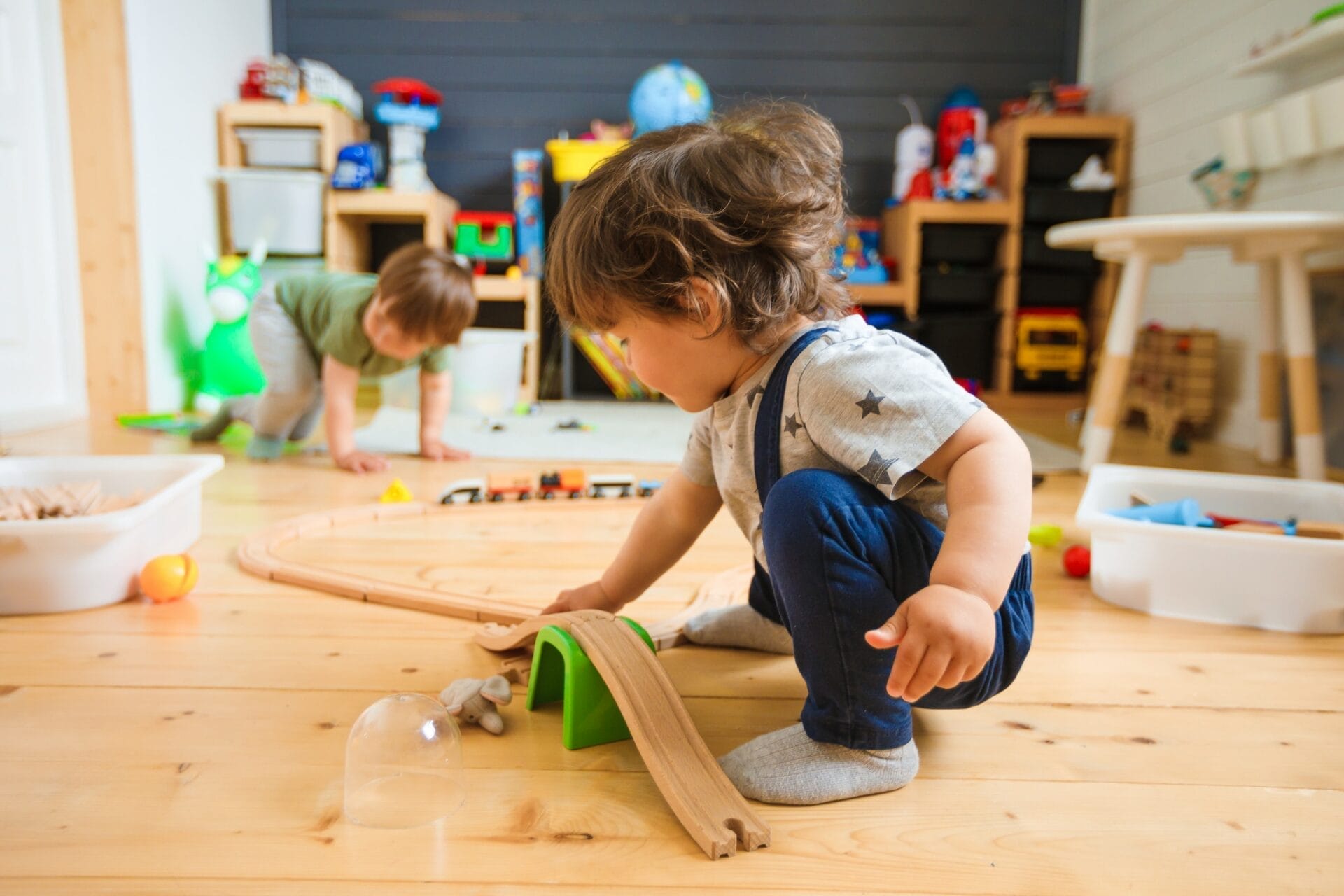The Function of Day Care in Fostering Social Abilities and Very Early Learning
Day care functions as a considerable environment for little ones, helping with important social communications that advertise early knowing. In this organized setting, youngsters engage with peers and caretakers, developing crucial interaction and participation abilities. As they browse play and different activities, they learn to deal with disputes and develop psychological intelligence. Comprehending the subtleties of these interactions reveals the profound effect childcare has on a youngster's advancement, shaping their future relationships and scholastic preparedness. What certain skills do youngsters acquire in this setting?
The Relevance of Social Communication in Childcare
While several moms and dads acknowledge the relevance of early childhood education and learning, the duty of social communication in daycare is often ignored. Day care settings give kids with indispensable opportunities to engage with peers, promoting essential social skills. During these developmental years, children discover to navigate numerous social dynamics, such as sharing, cooperation, and dispute resolution. Connecting with varied age teams and characters improves their capacity to adapt to different environments and develop compassion towards others.

Building Interaction Abilities Via Play
Play works as a powerful medium for kids to build essential interaction abilities in childcare setups. Via different play tasks, youngsters involve in discussions, reveal their thoughts, and learn to listen to others. Role-playing games, for instance, urge them to make use of language in various contexts, promoting vocabulary growth and understanding of social cues.

In addition, storytelling throughout play allows kids to share emotions and concepts, assisting them develop narrative skills and self-confidence in their verbal expressions. Generally, play not just acts as a delightful leisure activity yet also as a vital system for creating the communication skills required for successful social communications in later life.
Urging Participation and Team Effort
Participation and synergy are important skills that kids can grow in daycare atmospheres. With different group activities, such as building jobs or collective games, kids discover to share obligations and pursue typical goals. These interactions promote an understanding of the significance of listening to others, negotiating duties, and jeopardizing when needed.
In daycare setups, caretakers usually develop possibilities for youngsters to take part in team effort by motivating them to take part in group jobs. This not just assists kids develop social bonds yet additionally grows a sense of belonging and community.
As they browse these participating experiences, children gain useful insights into the characteristics of collaborating with peers. They learn to value diverse perspectives and acknowledge that each member adds distinctly to the team effort. Inevitably, these very early lessons in cooperation and synergy lay the foundation for healthier relationships and effective partnership in future social and academic settings.
Structured Learning Activities and Cognitive Growth
Structured understanding activities play an integral function in fostering cognitive development in kids (Child Care Center). These tasks, which consist of challenges, storytelling, and hands-on experiments, promote crucial thinking and problem-solving skills. In a day care setup, structured knowing motivates children to engage with their peers, boosting their capacity to process details and recognize numerous ideas
Through led play and interactive jobs, kids develop fundamental skills such as numeracy go to website and proficiency. Tasks focused around numbers can help children comprehend mathematical principles, while narration enhances language procurement and comprehension. Furthermore, organized understanding allows educators to evaluate developing progression and dressmaker tasks to specific learning needs.

Integrating a diverse series of structured activities not just advertises cognitive development however likewise prepares kids for future academic success. By providing a well balanced setting that cultivates exploration and inquiry, daycare programs play an important role in forming the cognitive capacities of young students.
Promoting Emotional Knowledge and Self-confidence
Emotional knowledge and self-confidence are necessary parts my website of a youngster's development, enhancing the cognitive abilities promoted through structured learning tasks. In day care settings, youngsters are supplied with opportunities to share their emotions and participate in social communications, which are vital for constructing emotional recognition. With guided play and team activities, youngsters discover to recognize their feelings, identify those of others, and establish compassion.
Additionally, interaction with peers and caretakers assists to cultivate self-confidence and resilience. Favorable reinforcement and support from grownups equip youngsters to take risks and face difficulties, cultivating a sense of success. As they browse social dynamics, kids construct confidence in their capabilities to connect, work together, and settle conflicts - Child Care Center. This caring environment permits the progressive growth of emotional intelligence, which is necessary for future social relationships and general wellness. As an outcome, childcare plays a significant role in promoting both psychological knowledge and self-confidence in young youngsters
Regularly Asked Questions
How Can Moms And Dads Choose the Right Daycare for Their Child?
Parents ought to think about aspects such as place, personnel certifications, security requirements, curriculum, and evaluates from other parents when selecting the right daycare for their youngster, guaranteeing it straightens with their kid's developmental requirements and family worths.
What Age Is Ideal for Beginning Day Care?

Just How Does Day care Effect Children's Habits at Home?
Day care frequently positively influences kids's behavior at home by boosting social abilities, promoting independence, and motivating emotional regulation (Child Care Center). Because of this, youngsters might show better interaction and participation, bring about even more unified household dynamics
Are There Any Kind Of Disadvantages to Childcare Attendance?
Yes, there are downsides to daycare attendance, consisting of possible separation anxiety, my explanation exposure to ailments, and irregular caregiving. These aspects can affect a child's psychological wellness and adjustment in the house, influencing general family characteristics.
Exactly How Can Parents Assistance Social Skills Learned at Childcare?
Parents can sustain social abilities learned at childcare by assisting in playdates, encouraging participating activities, modeling favorable communications, discussing sensations, and strengthening sharing and interaction in your home, thereby improving their child's social growth and confidence.
Day care offers as a considerable environment for young youngsters, helping with vital social interactions that advertise very early learning. Daycare settings provide kids with invaluable possibilities to involve with peers, cultivating vital social abilities. Play serves as a powerful tool for children to develop critical communication skills in day care setups. In daycare settings, kids are given with opportunities to reveal their feelings and involve in social communications, which are vital for developing psychological understanding. Childcare frequently favorably affects youngsters's actions at home by enhancing social skills, promoting self-reliance, and encouraging emotional guideline.